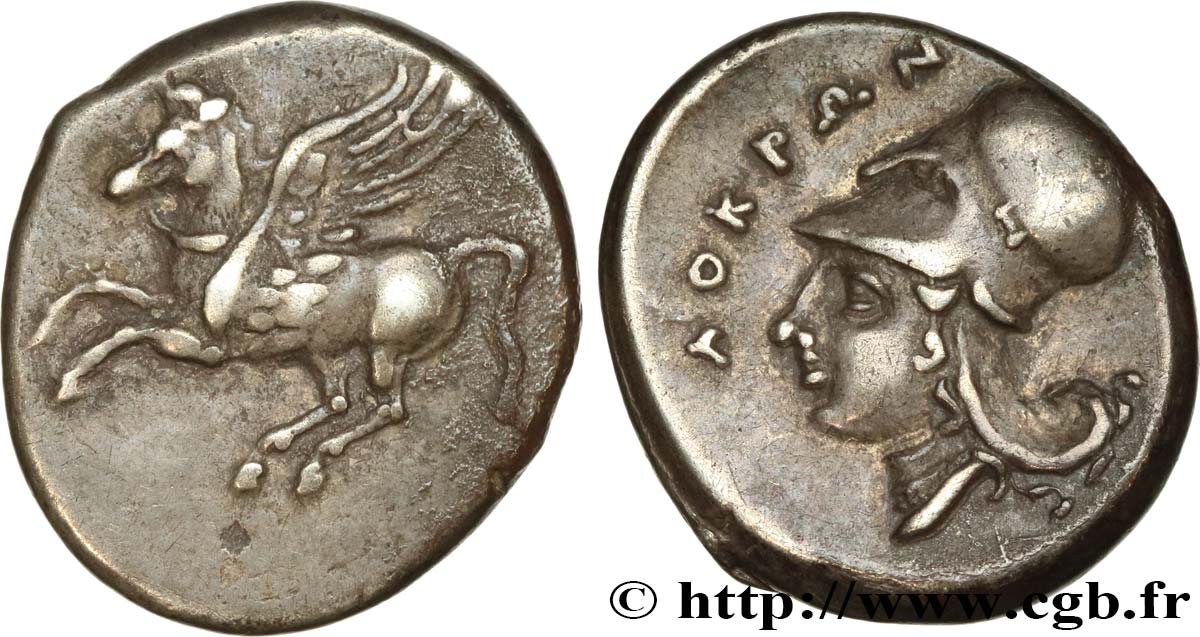bgr_461751 - BRUTTIUM - LOCRI Statère corinthien
Not available.
Item sold on our e-shop (2019)
Price : 550.00 €
Item sold on our e-shop (2019)
Price : 550.00 €
Type : Statère corinthien
Date: c. 340-320 AC.
Mint name / Town : Locres, Bruttium
Metal : silver
Diameter : 22 mm
Orientation dies : 6 h.
Weight : 8,54 g.
Rarity : R2
Coments on the condition:
Exemplaire sur un flan ovale bien centré des deux côtés à l’usure régulière. Beau Pégase. Très belle tête d’Athéna de style fin. Très jolie patine grise foncé de collection ancienne avec des reflets dorés
Catalogue references :
Predigree :
Cet exemplaire a été acquis en juin 1994 et provient de Conseils Placements
Obverse
Obverse legend : ANÉPIGRAPHE.
Obverse description : Pégase volant à gauche ; foudre au-dessous, pas visible sur cet exemplaire .
Reverse
Reverse description : Tête d'Athéna à gauche, coiffée du casque corinthien.
Reverse legend : LOKRWN.
Commentary
Nous n’avons pas relevé d’identité de coin pertinente. Notre exemplaire est proche de celui de MONNAIES XX, n° 8. Ce type semble plus rare que ne le laissent supposer les ouvrages généraux.








 Report a mistake
Report a mistake Print the page
Print the page Share my selection
Share my selection Ask a question
Ask a question Consign / sell
Consign / sell
 Full data
Full data